
In September of 2020, Route 160 was finally paved between Garza and Nosara, in the canton of Nicoya, after two decades of unfulfilled promises and half-finished projects. The news marked one of the community of Nosara’s greatest achievements as the bumps on the road and the white ashlike dust that covered and sickened anyone who crossed it became a thing of the past.
For a town like Nosara, whose community leaders say the State neglected them for years, the hope of pavement not only means a beautiful road, but also a boost to the local economy, a better quality of life and, even more importantly, respect for its inhabitants’ human rights.
That pavement that we can see today along the first 10 kilometers (6 miles) of the route is also involved in the Cochinilla case, one of the largest corruption investigations in the history of Costa Rica. The list of defendants involves public officials from several institutions and private companies, including Constructora MECO S.A., the company in charge of asphalt for the route.
In the Nosara community hall in November of 2019, First Lady Claudia Dobles announced doing a surface treatment and making three two-lane bridges along Route 160. Months later, the same office reported that the route would receive a budget of ¢1,092 million ($1,764,000) to pave the road and finish the project once and for all.
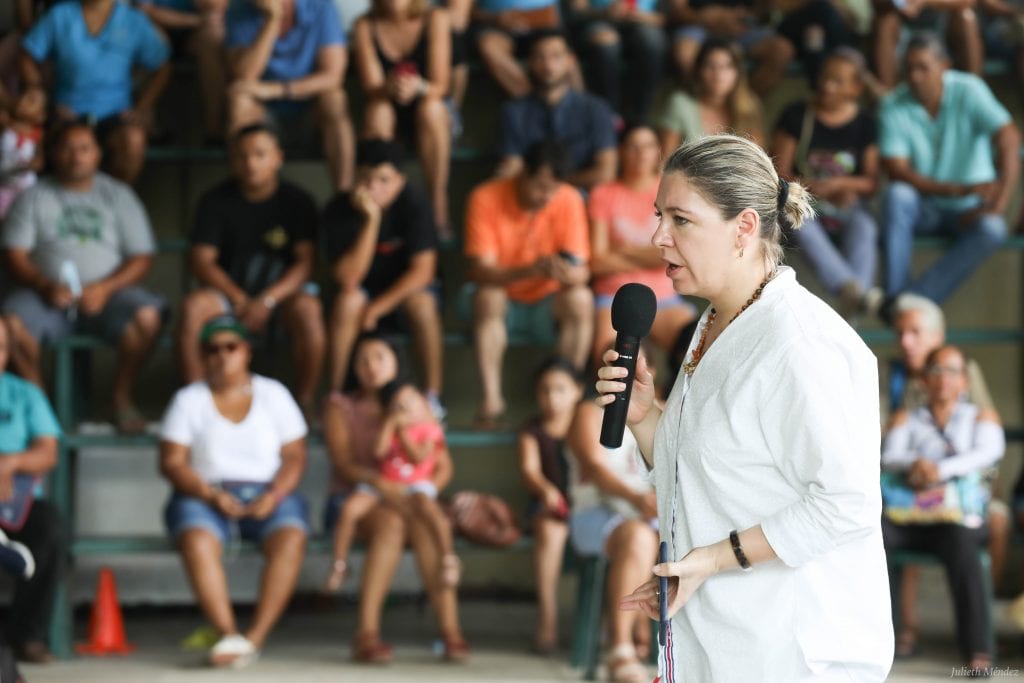
Photo courtesy of Casa Presidencial / Julieth Méndez
The Judicial Investigation Agency (OIJ- Organismo de Investigación Judicial) is investigating the first intervention because they think that the National Highway Council (CONAVI- Consejo Nacional de Vialidad) covered up MECO’s defects in the mixture used in the work. The second job is being questioned due to serious irregularities in the contract award that benefited the same company.
If the incidents were proven, MECO allegedly gave bribes such as lunches, legal advice and gifts not yet identified to CONAVI officials so as not to be penalized due to errors in the materials and to get the contract for the asphalt mix in Nosara.
According to the judicial file, which The Voice had access to, two senior CONAVI officials are involved in this irregular bidding process: the director of the Institutional Procurement Department, Carmen Madrigal, and the manager of Acquisitions and Finances, Carlos Solís. On behalf of MECO, the people under investigation are the owner Carlos Cerdas; the general manager, Abel Gonzalez; the business manager, Alejandro Bolaños, and Tobias Arce, a trusted contact hired by MECO to connect them with public officials and generate invoices made up to cover up the gifts.
Before we learned about the corruption case, the open bidding processes for the State were published through a regulation with the technical, financial and material needs that a company had to meet to carry out the project involved. CONAVI calls this a bidding notice. The regulation of the Administrative Contracting Law indicates that public institutions can’t add or remove requirements after its publication.
Afterwards, the companies had to register for the bidding process proposing a financial amount according to the real price of the project. According to the law, the State must hire the company that fulfills all the requirements of the bidding process and that presents the lowest offer.
A notice designed to lose
In December of 2019, CONAVI launched an open bidding notice to transport and lay asphalt on Route 160 in Nosara. According to records from the Comptroller General of the Republic (CGR- Contraloría General de la República), three companies participated: MECO, Constructora H. Solís and Quebradores Pedregal S.A., the latter with the lowest price proposal.
Although, according to the regulations, Pedregal met the budget, CONAVI didn’t think that they didn’t meet all the requirements.
The file relates that due to the evident relationship of trust, the director of CONAVI’s Institutional Procurement Department, Carmen Madrigal, told MECO’s business manager, Alejandro Bolaños, that Pedregal had the best offer for the bidding process. This is sensitive information and Madrigal wasn’t authorized to release it.
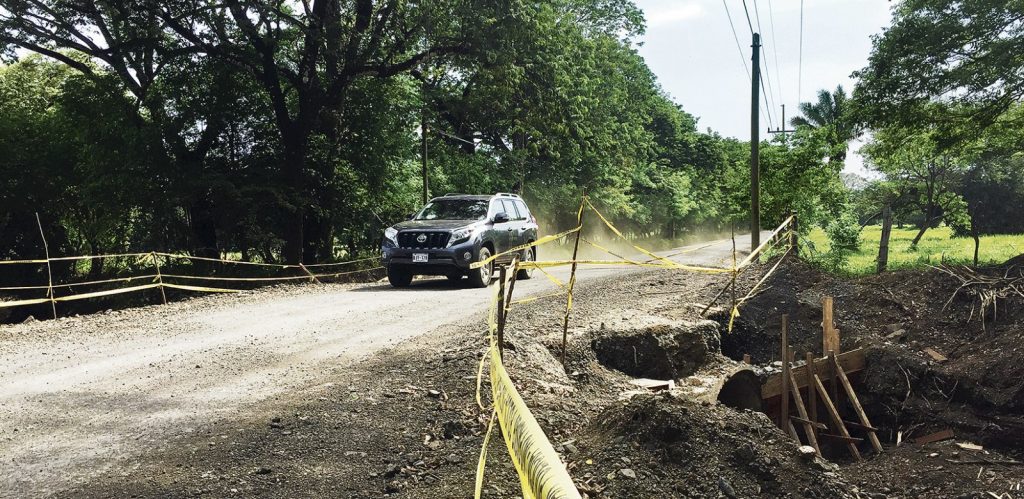
Photo: César ArroyoPhoto: César Arroyo
Authorities believe that is why MECO sent CONAVI a letter in January of 2020, accusing Pedregal of not having hydrocarbon storage permits, an authorization that the Ministry of Environment and Energy (MINAE- Ministerio de Ambiente y Energía) gives to ensure the quality of the asphalt mix. Later, CONAVI sent an inquiry about the lack of the permit, arguing that if they didn’t have it, “they could no longer consider them.”
This permit wasn’t a requirement in the notice published for the bidding process. In fact, in the file, the judicial authorities affirm that it is an “old technique” to disqualify other companies in state bidding processes.
The investigators emphasize that these types of permits are “too specific” and “impossible to obtain in a short time before the presentation of proposals,” unless the participants know the requirements in advance and “under the table.”
CONAVI, then, not only allegedly requested this permit when it already knew all of the participants’ offers, but also required an authorization that is difficult to obtain. In addition, these changes in the bidding process were allegedly agreed upon with MECO in exchange for bribes.
Companies like MECO always had a clear advantage over other competing companies since the requirements that they are going to request are given to them long beforehand under the table,” the file explains.
The executive director of the Chamber of Builders, Randall Murillo, agrees with the opinion of the authorities. The expert said that the bidding notice should have a set of “reasonable” requirements, understanding that some processes are “impossible” to achieve in 15 days and that, many times, they have nothing to do with the project. He thinks that many of the bidding processes were designed to “discourage local businesses from participating.”
Murillo also emphasized that although we see corruption “in advanced stages of the bidding processes,” the favoritism begins from when the requirements are designed.
They design them made for them. It’s in their interests that companies like MECO are in charge of the bidding processes, just as it’s in the companies’ interests to have corrupt officials in charge of projects,” he pointed out.
Larissa Alvarez, an expert researcher on politics and corruption at the National Politics Observatory (OPNA- Observatorio de la Política Nacional) explains it in the same way. The specialist said that by preventing other construction companies from winning contracts through the manipulation of the bidding notices, the State would be promoting a duopoly in which the companies with power are the ones that control the prices for public works.
Pedregal responded that the permit was already being processed three months before the bidding process was published and that, according to what was established by MINAE, they were going to receive it in February, long before the work was to begin. The company also alleged that the offer included proof of application for this permit and the option of using a third-party plant, so they saw the critique of competency as irrelevant.
According to MINAE’s press department, at that time, approval of hydrocarbon storage permits could take from 1 to 15 months, depending on whether the applicants submitted all of the requirements complete.
In August of 2020, some modifications were made to this process that required the Ministry to deliver the permits within a calendar month. Even so, Pedregal didn’t receive the permit for the plant located in Nicoya until January 13, 2021, seven days before the paving of the route was completed.
The Voice requested the petition files and authorization for this type of permit for MECO, H. Solís and Pedregal. As of the publication of this article, they didn’t give them to us.
“A False Assumption”
In March of 2020, CONAVI official Carmen Madrigal attended a private lunch with Bolaños, MECO’s business manager, and Tobias Arce, an intermediary hired by MECO who had connections within public institutions, to discuss other ways to favor the company within the bidding process.
On that occasion, Bolaños and Arce agreed to pay for Madrigal’s lunch and give her “a little gift,” which was previously authorized by the owner of MECO, Carlos Cerdas. To date, OIJ doesn’t know what the gift consisted of.
The file emphasizes that MECO had a disadvantage: it requested a budget of ¢1,092 million ($1,764,000), 12% higher compared to Pedregal (¢975 million or $1,575,000). If the Judiciary succeeds in proving the irregularities, Costa Rica would have paid ¢117,333,000 (about $189,500) in excess to pave the route.
A month after the lunch, in March, Bolaños contacted Madrigal again to put pressure on CONAVI’s other capacities to reevaluate the bidding process and favor his company, the file notes.
In return, she requested legal help to fix the immigration status of her Salvadoran domestic employee, whose DIMEX was about to expire. OIJ couldn’t verify whether this process was carried out.
Days later, on March 16, MECO’s general manager, Abel Gonzalez, had a call with CONAVI’s manager of Acquisitions and Finances, Carlos Solis. Both managers agreed to go out for lunch and look for another “reason” to get Pedregal out of the way: that the company didn’t have a “plant and lacked equipment.”
On March 18, Carlos Solis from CONAVI recommended that the institution disqualify Pedregal because the company had presented a line of credit and the other two candidates had not. In addition, he mentioned the construction company’s lack of its own equipment.
The expert from the Chamber of Builders, Randall Murillo, stated that if the bidding notice doesn’t request that companies must use their own machinery, CONAVI can’t disqualify an offer for that reason.
In the offer, Pedregal proposed a line of credit to guarantee compliance with its contractual obligations. According to the regulation of the Administrative Contracting Law, this is enough to qualify Pedregal as having financial capacity, one of the aspects necessary to win a bid.
According to the law, Pedregal had 10 days to appeal CONAVI’s decision to CONAVI’s manager of Acquisitions and Finance, Carlos Solis. Although the company did appeal, clarifying that it was not true that they lacked equipment or financial capacity, Solis never responded.
That’s why Pedregal went to the Comptroller’s Office to present their case. In the record of the appeal, they argue that the notice never mentioned that the asphalt equipment had to be their own, as Solis’s recommendation made it seem– an evaluation that ultimately eliminated them from the competition. They also complained about the “false assumption” of their financial status.
In an interview with The Voice of Guanacaste, Pedregal’s head of state contracting, Josue Jimenez Quiros, affirmed that this accusation was “simply false.” Although the business corporation did have repossessions, the business affected was another company in the group and not the construction one. “A financial evaluation was applied to us under a wrong assumption,” he lamented.
In reviewing the appeal, the Comptroller’s Office omitted Pedregal’s commitment to use a third-party plant or the accusation of financial problems. Instead, it rectified CONAVI’s decision to choose MECO as the winner of the bid since Pedregal allegedly failed to comply by not “providing evidence of the requested requirements” at the time of the offer.
Read more: Pedregal: Possible actions contrary to the law would explain why we haven’t won some public work bids
After the appeals, MECO managed to get the contract for the Route 160 project. According to data from the Presidential House, the work began at the end of September of 2020 and ended on January 20 of this year.
MECO confirmed making mistakes on Route 160
MECO was also in charge of the surface treatment and building three two-lane bridges over Route 160, announced by First Lady Claudia Dobles in November of 2019. The work lasted about 6 months, between November of 2019 and June of 2020.
According to the OIJ file, in February of last year, MECO’s general manager, Abel Gonzalez, expressed to an unidentified colleague during a phone call that he was concerned about the project in Nosara since “a special case had presented itself” in which the plant used reported defects that affected the mix, producing lower quality material.
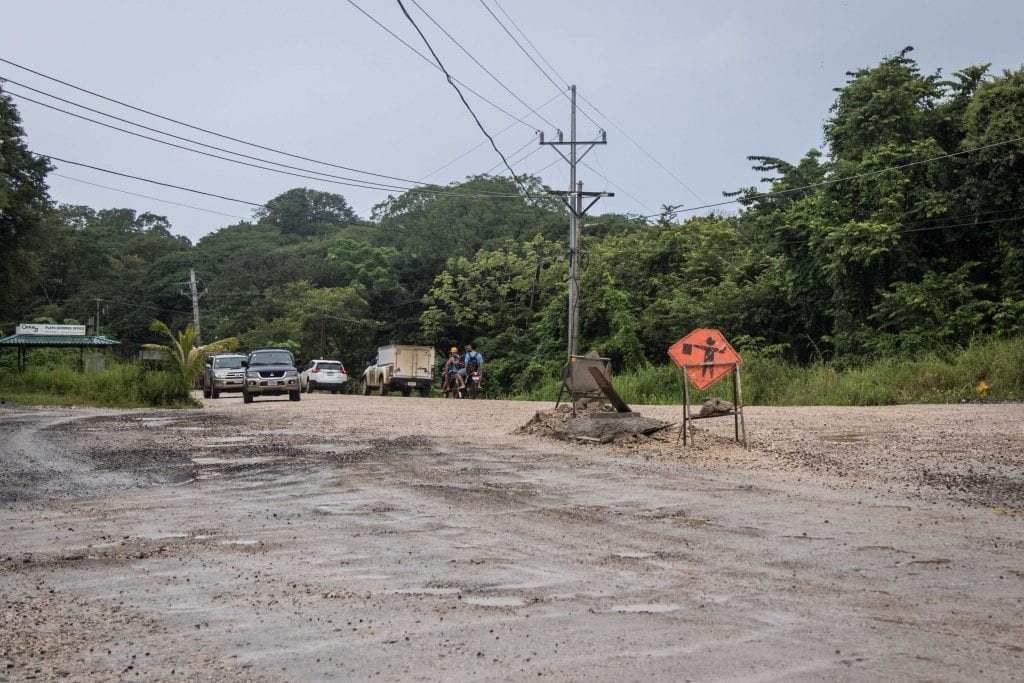
In addition, on another call with MECO engineer Saul Zamora, Bolaños said that his workers had spoken with CONAVI officials, such as Carlos Solis, and with part of the engineering consultancy in charge of supervising the work, LGC Ingeniería, to free themselves from “penalties” due to mistakes made not only on Route 160, but on other routes in San Carlos and San Jose.
On that same call, Zamora affirmed that the mixture of the surface layer had already been regularized and “did not present any more problems.” Therefore it was essential to hide the above error. Bolaños himself pointed out in that call: “we are closing the month of February with zero punishments from all sides.”
A blow to democracy
For Camila Salazar, the head of data analysis for the Open Contracting Partnership organization, this case exemplifies “basic behaviors of corruption within public contracting.” The expert affirms that aspects such as the manipulation of bids and the illicit favoring of companies in tenders are patterns that, if not treated, tend to be constantly repeated.
Salazar emphasizes that these common vices in the construction industry ultimately affect the most vulnerable population, because by manipulating the bids the State cannot guarantee that the materials used for the road will suffer from problems in the future.
For Larissa Álvarez, an OPNA researcher, the Cochinilla case was an umbrella of complicity with corrupt companies and officials that allowed them to control works in the country. This complicity that made the State spend more funds, in the end, affects the financing of other works that could be carried out with the money used by the companies.
They (the construction companies) are the ones who control the price and the country is obliged to assume prices that they cannot afford and that will leave it in debt, and they are creating inequality not only in the construction companies but in Costa Rica”, Álvarez sentence .
Randall Murillo, from the Chamber of Construction Companies, agrees. For him, construction companies with irregularities begin to determine what is the value of the projects they carry out, when it is a role that the State must assume.
In the end this hurts people. The government was able to save that money for other street budgets, for more kilometers of asphalt or other projects in the area. The most affected is the Costa Rican ”.
For him, construction companies violate the right to free competition, bankrupting local companies and taking the opportunity for international firms to come to the country and generate more jobs.
Change for tenders
Experts agree that the Cochineal case will be a precedent to make these processes transparent and eliminate loopholes that allow this type of irregularity.
The United Nations Office for Project Services (UNOPS), for example, stated that if the Judiciary proves the guilt of the companies, they will not be able to compete again in road infrastructure projects in the countries. linked to the United Nations.
However, the Central American Bank for Economic Integration (CABEI) told La Voz that the case will not influence the relationship that the institution has with the Government of Costa Rica.
We believe in the institutionality of Costa Rica and we trust that due process will be carried out with this matter so that the authorities get to the bottom of it. Meanwhile, we continue to work hand in hand with our founding partner ”.
On his part, the current MOPT minister, Rodolfo Méndez Mata, ruled on June 24 that his institution will not extend public works contracts to any of the companies mentioned. He also informed that they will change the way the ministry issues its tenders.
Currently all of the defendants involved in Route 160 are on probation. Carlos Cerdas, the owner of MECO, provided a certificate of deposit for $ 5 million as surety.


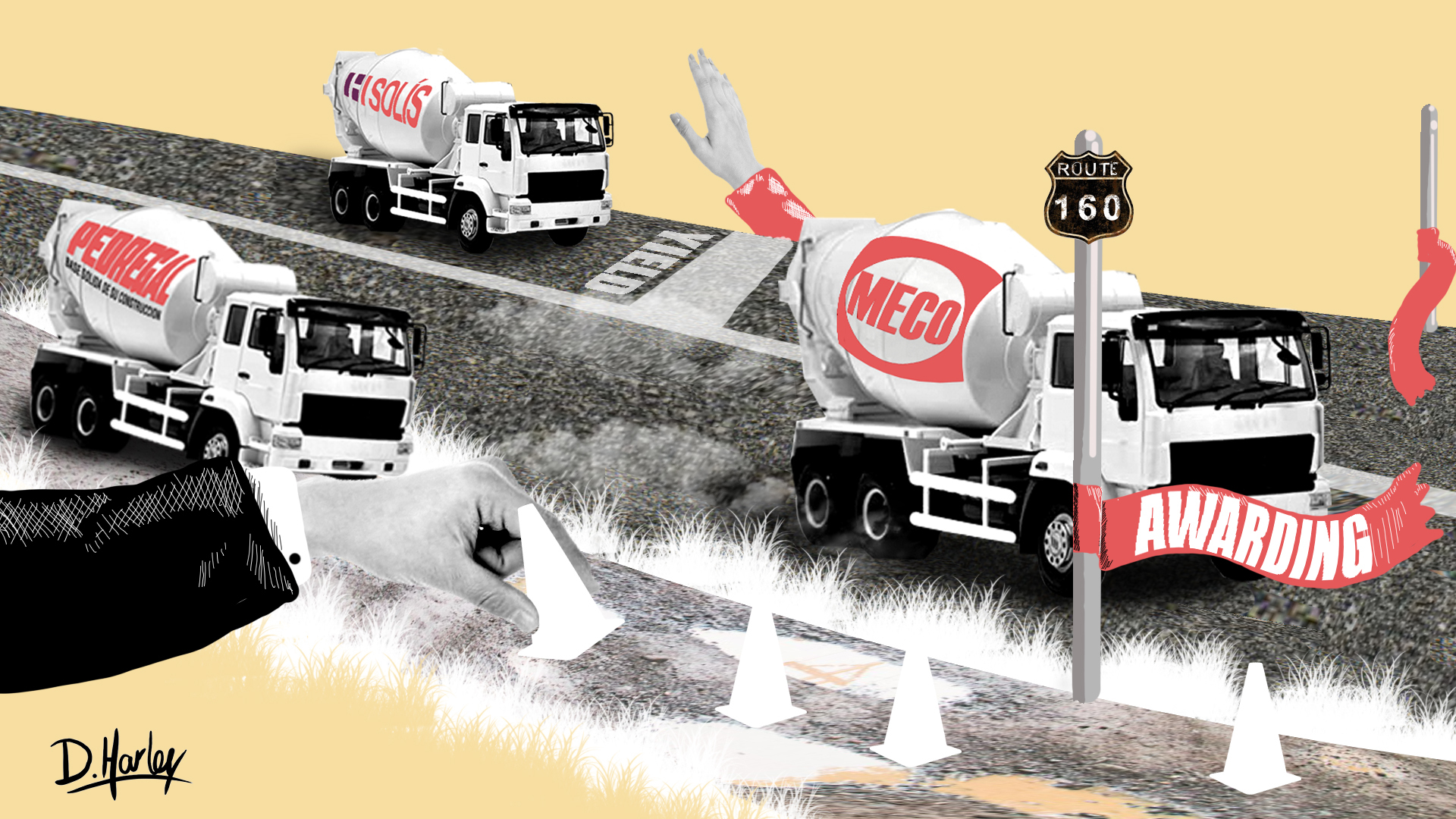
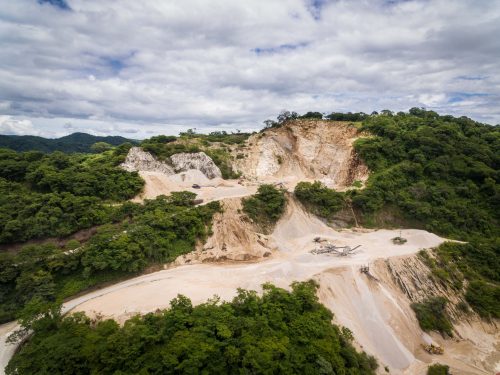
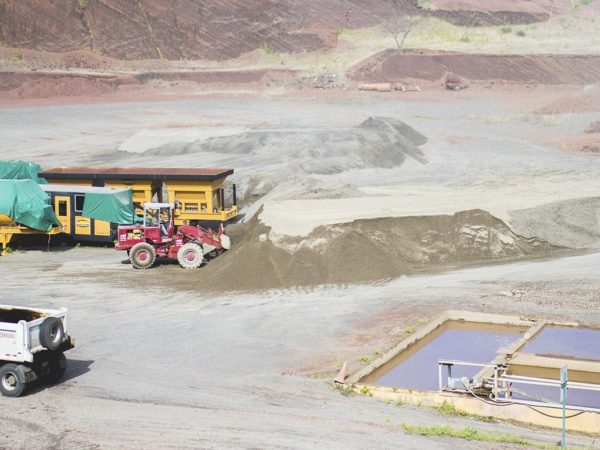
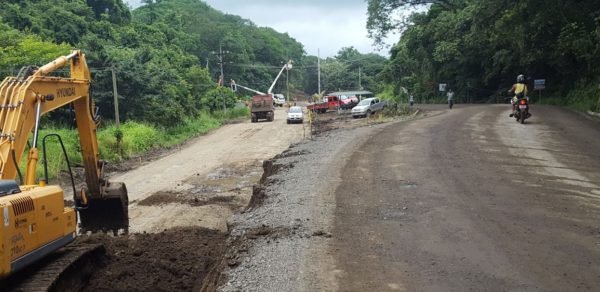

Comments